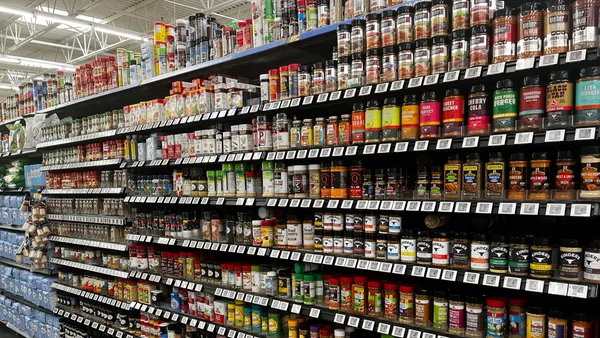The Friday Checkout is a weekly column providing more insight on the news, rounding up the announcements you may have missed and sharing what’s to come.
San Diego earlier this week passed an ordinance requiring grocers that offer digital discounts or coupons to also make corresponding paper coupons and pricing of identical value available to consumers.
While this might seem like an issue in one city in a progressive state, the city council’s president noted that the ban follows similar attempts in several states, including New Jersey, Washington, Illinois and Massachusetts.
The ordinance’s passage raises the question of whether other cities or states could follow suit, especially as grocers already feel pressure from consumer advocacy groups that claim offering digital-only deals introduces accessibility concerns.
It also raises questions about the role paper and digital communications and offers play in reaching consumers. While offering digital-only coupons could cut down on printing costs and tie into sustainability goals around paper usage, not offering printed deals could alienate consumers who don’t have access or the ability to clip coupons online.
Kroger started phasing out mailed circulars nationwide in 2023. That same year, Giant Eagle decided to resume mailing printed weekly circulars in certain areas.
While many consumers are digitally savvy — omnichannel shoppers, as the industry likes to describe them — there are many others who still prefer offline materials, and authorities around the country are looking out for them.
In case you missed it
WinCo Foods eyes expansion into Colorado
The Idaho-based grocery chain is planning to build a location north of Denver that would be its first store in Colorado, the Denver Business Journal reported Wednesday. Winco has asked city officials in Thornton, Colorado, for permission to build an 84,000-square-foot store on two parcels of undeveloped land, according to the news outlet. In addition, the discount food retailer recently bought land in Firestone, Colorado, about 20 miles north of Thornton, that could potentially be used for a store, the local news outlet added.
Not selling alcohol online can be costly for retailers
Retailers that don’t allow shoppers to buy alcoholic beverages online are losing out on billions of dollars in potential sales, according to the results of a survey of 1,000 shoppers released earlier in March by Drinks, which provides technology to help retailers sell alcohol through digital channels.
Nearly half of surveyed shoppers between the ages of 21 and 34 would purchase alcoholic beverages online from their favorite online retailer instead of a traditional alcohol store if given the opportunity, according to the data. Forty-five percent of people ages 35 to 54 are also more inclined to buy alcohol via e-commerce.
In addition, younger shoppers are three times more likely than older people to try new alcoholic beverage brands based on digital ads and recommendations they see online, according to the research, which was commissioned by Drinks and conducted by Dynata.
Kroger reveals interim chief executive’s pay
The grocer has agreed to pay Ronald Sargent, whom it named as interim CEO on March 3, a yearly base salary of $4.35 million, according to a March 13 regulatory filing. Sargent, who took over as chief executive of Kroger following the resignation of former CEO Rodney McMullen, will also receive 60,515 shares of restricted company stock, Kroger said. The shares, which vest in one year, are worth about $4 million at Kroger’s current stock price.
Impulse find
Come for the groceries, stay for the gambling?
The proprietors of three Cincinnati grocery stores are each facing charges that they ran an illegal gambling establishment, misused SNAP and WIC benefits, and engaged in telecommunications fraud, WLWT reported Wednesday. The indictments of the six store owners, which follow a multiyear investigation that involved the USDA, allege that the grocers committed the crimes between October 2022 and January 2025, according to the TV station.












